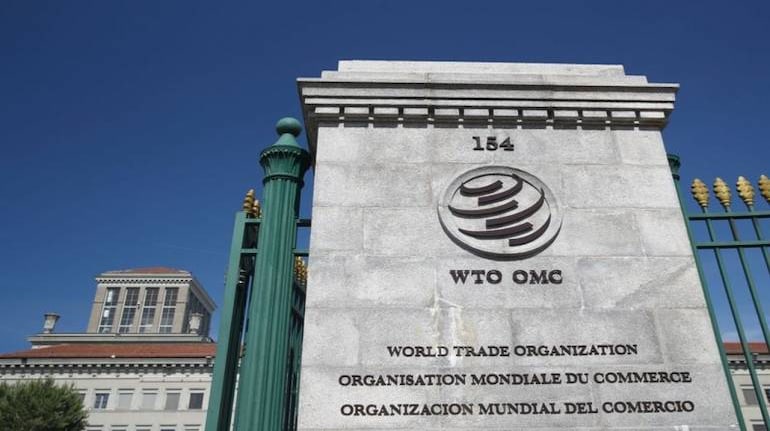



The G33, an often overlooked coalition of developing nations including India, along with 29 other countries, is planning a major push to stalled talks on farm rules at the World Trade Organization (WTO).
The effort comes ahead of the WTO's ministerial conference, set to begin in Geneva on November 30. Talks on whether countries have the right to stockpile foodgrains and provide subsidies to farmers have long been sidelined in the face of opposition from developed countries.
Multiple sources confirmed to Moneycontrol that a series of meetings are now being planned by the coalition in the coming months.
Developed nations at the WTO, including the United States, Canada, Australia, and members of the European Union, oppose public stockholding of food crops and want developing nations, including India, to cap the minimum support price (MSP) paid to farmers, as well as limit input subsidies offered for fertiliser, seeds, pesticides and irrigation.
Developed countries have refused to lower high levels of targeted agricultural subsidies provided to their own farmers.
"The repeated refusal by the developed bloc to discuss this issue led to considerable frustration amongst the developing nations till now. But the situation has now reached a head," a senior official said.
At a recent meeting of trade ministers from G33 nations, Commerce Minister Piyush Goyal said the current global rules continue to be extremely skewed against developing and poor nations.
"The G33 has also decided to push for the goal of instituting the seeking of special and differential treatment provisions at the WTO, something that has been discussed for long but has not seen much real progress," a second senior official said.
Agreements on which the WTO is based include special provisions that offer developing countries special rights and enable developed countries to treat developing countries more favourably than they would other members of the multilateral body.
Food stockpiling
India and other developing nations run major public stockholding programs to purchase, stockpile and distribute foodgrains to people in need. Richer economies say some stockholding programs are considered to distort trade when they involve purchases from farmers at prices fixed by the governments, such as India's minimum support price program.
The WTO currently has a 'peace clause' that permits uninterrupted implementation of India's food security program till a permanent solution is found. This allows India to procure and stock foodgrain for distribution to the poor without being penalised by WTO members even if it breaches the 10 percent subsidy cap prescribed by the multilateral trade body.
For a permanent solution, India has proposed either amending the formula to calculate the food subsidy cap of 10 percent, which is based on the reference price of 1986-88, or allowing such schemes outside the purview of subsidy cap.
Farm subsidies
At present, WTO rules in the area of farm subsidies are skewed against developing countries like India that have a large number of poor farmers to support as the pay-outs for MSP are included in the prohibited subsidies that can’t exceed 10 percent (de-minimis level) of the value of production.
As a case in point, India provides a subsistence amount of about $260 per farmer per annum compared to over 100 times more in some developed countries.
On this issue, India last informed the WTO that its farm subsidy did not go beyond the permissible limit between 2011-12 and 2013-14. New Delhi has said that input subsidy, which includes those for fertilisers, irrigation and electricity, fell to $22.8 billion in FY2014 compared with $29.1 billion in FY 2011.
These are part of the 'green box' or non-trade distorting subsidies that are allowed without limits for countries such as India that have millions of poor farmers.
Discover the latest Business News, Sensex, and Nifty updates. Obtain Personal Finance insights, tax queries, and expert opinions on Moneycontrol or download the Moneycontrol App to stay updated!